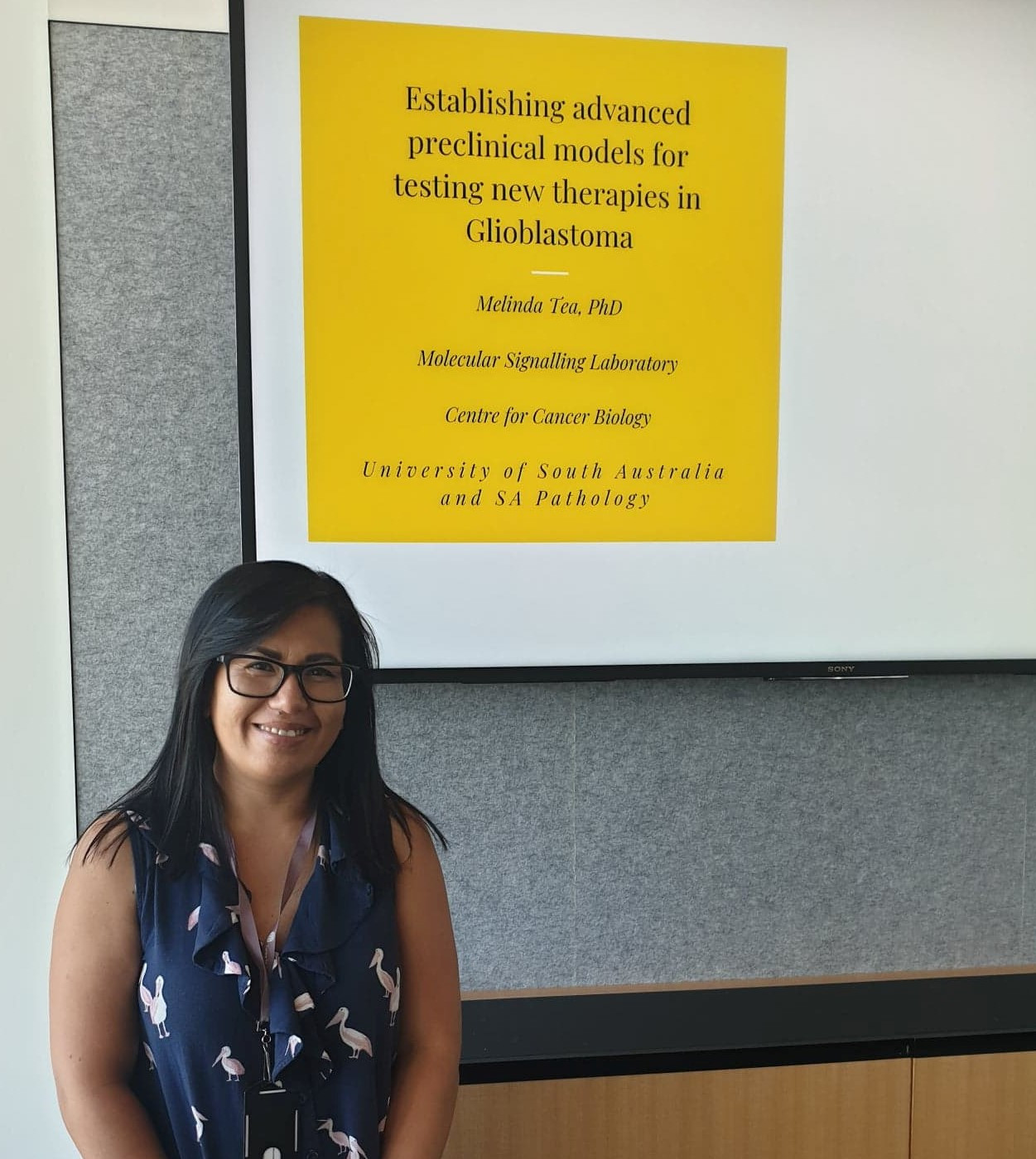Dr Melinda Tea - Q&A on Brain Tumour Research
Dr Melinda Tea was awarded the 2019 Chris Adams UniSA grant for her research into the fatal brain cancer, Glioblastoma. In this Q&A she explains why she is so passionate about this area of research.

How did you become a researcher in this area? What did you study?
I completed a Bachelor of Laboratory Medicine with Honours at the University of South Australia in 2004, and then went on to work as a researcher and completing a PhD in the field of eye health in premature babies. In 2012, I began my post-doctoral research at to the Centre for Cancer Biology to work on lymphatic development. In 2017, I joined the lab of Prof Stuart Pitson, NRF Chair of Brain Tumour Research, where I am now driving research into GBM.
What fascinates you about brain tumour research and why?
Brain tumours critically impact not only the normal functioning of the body, but also aspects of our behaviour and personality given their location. They affect people of all ages and walks of life and is the biggest killer of people under 40, including children than any other cancer. As a researcher, our lab is interested in finding new ways to improve survival outcomes for patients, using new approaches, technologies and finding the best pre-clinical models to test these new therapies that will translate to better outcomes for patients
What are you hopes for the future for brain tumour research and why?
The survival rate for brain cancer has barely changed in the last 30 years and for patients with GBM, it remains an incurable disease. Through our research we hope to achieve more effective treatments for brain tumour patients
What motivates you to get up and go to work every day?
Regularly meeting family members of patients who have been diagnosed and then lost their battle against brain cancer reminds us of how important increasing survival rates for brain cancer is to those affected by this devastating disease
The willingness of patients to donate their tissue for brain tumour research despite the fact that they will not directly benefit from the research carried out using their tumour tissue reflects their desire to help other patients who will benefit from this research in the future.
The hope of being able to make a difference to the quality of life and increasing the survival times for patients diagnosed with brain tumours
How will your current research into GBM help those diagnosed in the future and why?
Our research is focused on developing new therapies for glioblastoma. A key part of our research is the use of tissue donated from patients with GBM, making our findings especially relevant for those diagnosed in the future who will benefit from our research.
Our advanced pre-clinical models of GBM also allow us to test these drugs in the best physiologically-relevant models prior to use in clinical trials in patients.
Dr Melinda Tea was awarded the 2019 Chris Adams UniSA Research Grant to undertake overseas training into the highly-specialised and advanced use of the Bruker Micro-CT system instrumental in understanding the particular fatal brain cancer glioblastoma (GBM).
Dr Tea is a Research Associate from the Centre for Cancer Biology (CCB) at University of South Australia (UniSA).
Please donate now to Brain Tumour Research.




